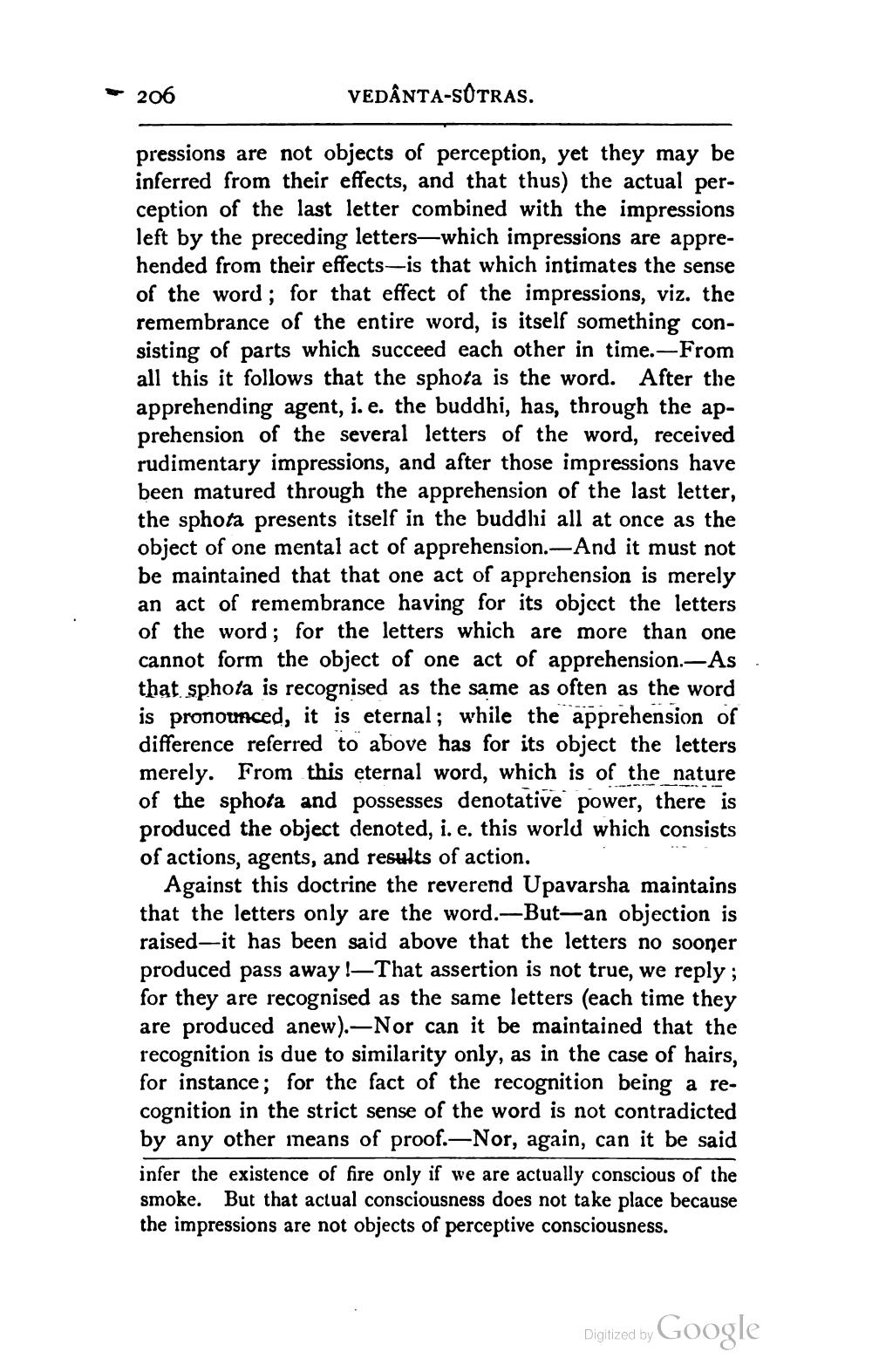________________
- 206
VEDÂNTA-SÓTRAS.
pressions are not objects of perception, yet they may be inferred from their effects, and that thus) the actual perception of the last letter combined with the impressions left by the preceding letters—which impressions are apprehended from their effects—is that which intimates the sense of the word; for that effect of the impressions, viz. the remembrance of the entire word, is itself something consisting of parts which succeed each other in time. From all this it follows that the sphota is the word. After the apprehending agent, i.e. the buddhi, has, through the apprehension of the several letters of the word, received rudimentary impressions, and after those impressions have been matured through the apprehension of the last letter, the sphota presents itself in the buddhi all at once as the
of one mental act of apprehension.-And it must not be maintained that that one act of apprehension is merely an act of remembrance having for its objcct the letters of the word; for the letters which are more than one cannot form the object of one act of apprehension.-As that sphota is recognised as the same as often as the word is pronounced, it is eternal; while the apprehension of difference referred to above has for its object the letters merely. From this eternal word, which is of the nature of the sphota and possesses denotative power, there is produced the object denoted, i.e. this world which consists of actions, agents, and results of action.
Against this doctrine the reverend Upavarsha maintains that the letters only are the word.-But-an objection is raised—it has been said above that the letters no sooner produced pass away !—That assertion is not true, we reply ; for they are recognised as the same letters (each time they are produced anew).—Nor can it be maintained that the recognition is due to similarity only, as in the case of hairs, for instance; for the fact of the recognition being a recognition in the strict sense of the word is not contradicted by any other ineans of proof.—Nor, again, can it be said infer the existence of fire only if we are actually conscious of the smoke. But that actual consciousness does not take place because the impressions are not objects of perceptive consciousness.
Digized by Google




